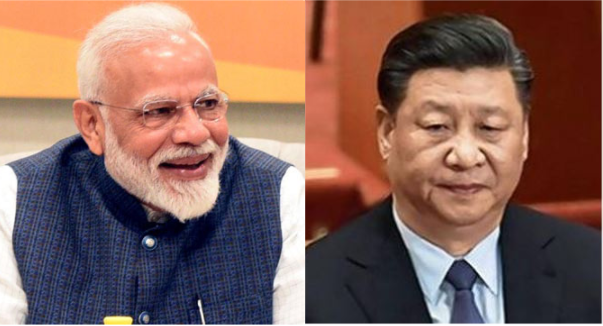After unleashing a deadly pandemic upon the entire humanity and repeatedly ratcheting up the border issue with India along the LAC–China has received a telling blow from India on the economic front in the Diwali festive season. And with India not signing the China-centric Regional Comprehensive Economic Partnership (RCEP) that was inked on Sunday, which certainly puts the future of any such regional trade blocs in jeopardy, Xi Jinping and his lackeys are trying to win back India.
In an attempt to placate India, the entire politburo of China is now doing a volta-face when it comes to its foreign economic policies. Usually, China tries to engulf a country by flooding its market with Chinese exports, leaving no room for the competition which perishes against the deluge of cheap and low-cost Chinese products. But according to a Hindustan Times report, China has announced that it is no longer aiming to achieve trade surpluses with other nations.
“Beijing will import over $22 trillion worth of goods over the next decade, and the country is accelerating its opening-up in spite of the coronavirus pandemic,” read the report quoting President Xi Jinping.
Xi Jinping didn’t name India outrightly but with a big market seemingly getting away from his hands, the CCP leader is now looking to make quick amends. The reason is simple, during the one-month Dussehra-Diwali festive season that ended last Saturday, sales across India increased to more than ₹72,000 crores ($9.7 billion).According to the Confederation of All India Traders (CAIT), the apex body of the traders’ union which represents 4,000 traders’ bodies and more than 7 crore traders across the country– the sales have led to an expected loss of $6 billion (~ Rs 40,000) to China.
Furthermore, India boycotting the RCEP has given a sour taste in the mouth of the paper dragon. RCEP potentially includes more than 2.2 billion people or 30% of the world’s population, and a combined GDP of about $26.2 trillion, accounting for about 40 per cent of world trade. However, India’s decision to not join RCEP has reduced the potential impact of RCEP significantly. The Dragon has realized that it cannot move ahead without India and that the RCEP is a dead deal without New Delhi. The reader should understand that India had opted out of RCEP negotiations due to the concerns of domestic businesses about the trade agreement. With the COVID-19 pandemic still looming around, it becomes all the more important to protect the domestic market of the country.
Add to it, India already has FTA’s with ASEAN nations, Japan, and Korea. We do not need an FTA with China, for obvious reasons that the country would become a dumping yard for Chinese goods. As for Australia and New Zealand, New Delhi has been working closely more than ever with the two Tasmanian nations and if an FTA will be required, it could be signed free from the ambit of RCEP.
With such permutations and combinations in mind, China has rolled its final die and gambled that India could reverse its inhibitions about the RCEP if Beijing imports more goods from India and reduces the Trade deficit. However, New Delhi understands the mind games of an ambivalent China, and until some concrete action is taken on the ground to address the massive trade deficit, India will not join RCEP, now, or ever in the future.
